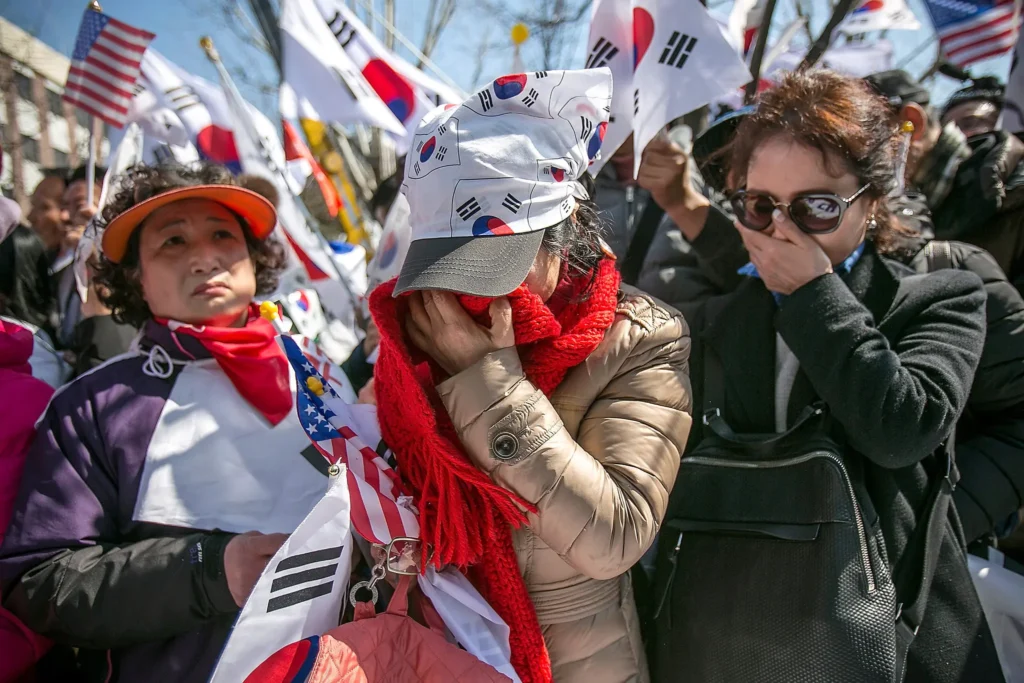Growing Public Outcry
Protests broke out near the residence of impeached President Yoon Suk Yeol. Hundreds of South Koreans gathered, demanding his removal and arrest. Their anger stems from Yoon’s controversial martial law decree, which triggered a political crisis in the country. As a detention warrant issued by a Seoul court nears expiration, authorities are preparing to intensify efforts to detain Yoon. However, enforcement has been obstructed due to a standoff with his Presidential security service.
Tensions Rise Amidst Protests
Despite harsh weather conditions, the protests grew. Demonstrators voiced frustration over Yoon’s refusal to cooperate with investigators looking into rebellion charges. The investigation stems from Yoon’s martial law declaration on December 3. The National Assembly quickly overturned this decree, sparking outrage. Critics viewed the move as unconstitutional and a threat to South Korea’s democracy. Many feared an authoritarian shift in governance, prompting calls for his resignation and accountability.
Rebellion Charges and Legal Resistance
Following the martial law declaration, opposition parties and civil society groups condemned Yoon’s actions. Though the declaration was overturned, concerns remain about his intentions and the future of South Korea’s democracy. Critics argue that Yoon’s decision showed a lack of regard for constitutional checks and balances.
A Seoul court issued a detention warrant for Yoon, aiming to hold him accountable for his role in the decree. The court also sought to search his residence for evidence related to rebellion charges. However, due to his status as president, Yoon is protected from legal action. This immunity complicates enforcement. Yoon’s security team has actively blocked any attempts to detain or investigate him, creating a tense standoff with authorities.
Frustration Grows Over Yoon’s Actions
Public frustration intensifies. Many citizens view Yoon’s refusal to cooperate as an attempt to avoid justice. The investigation into rebellion charges remains central to the ongoing crisis. Protesters accuse him of evading legal consequences and demand greater accountability and transparency in government.
Pressure Mounts as Deadline Approaches
The expiration of the detention warrant adds urgency. Authorities feel increasing pressure to act before the opportunity is lost. However, resistance from Yoon’s security service complicates matters. Public perception suggests that Yoon’s immunity from prosecution and his refusal to cooperate have allowed him to evade justice.
A Nation Divided
Protests near Yoon’s residence reflect a deepening divide within South Korean society. Many citizens are calling for greater accountability and a reaffirmation of democratic values. Yoon’s actions raise questions about the limits of presidential power and the need for constitutional checks. The political crisis, sparked by the martial law decree and the ongoing investigation, is a defining moment for South Korea’s democracy.Stay up to date and connect with us on [Facebook: https://www.facebook.com/share/1An4REwgwy/?mibextid=wwXIfr].

